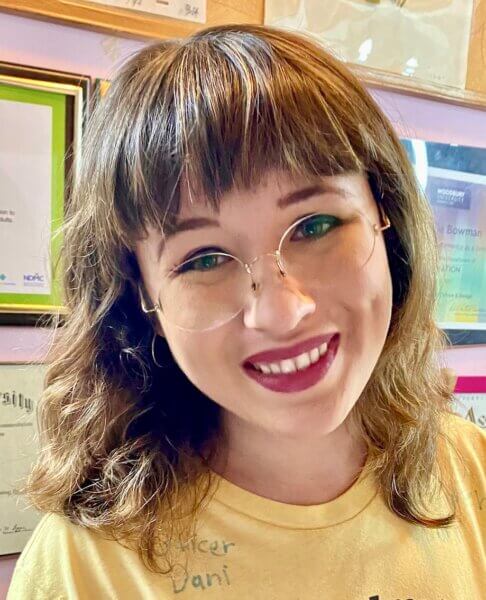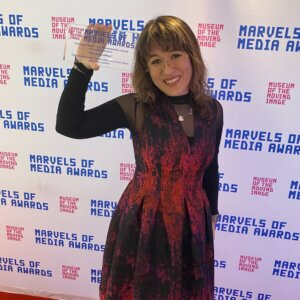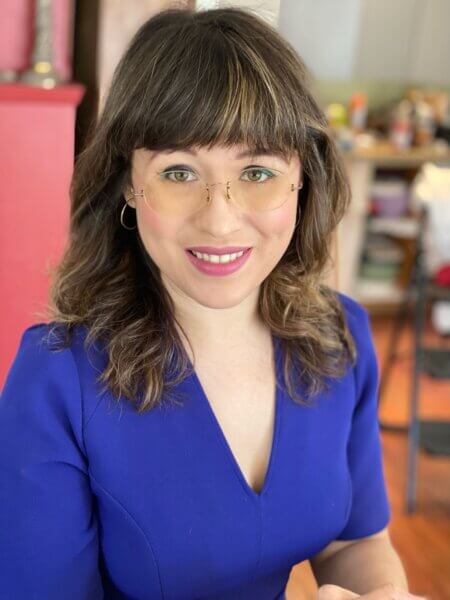Autism Awareness Month: Interview with Dani Bowman of DaniMation Entertainment
Last year on Skwigly, we were fortunate to have writers, animators, and filmmakers join us to celebrate Autism Awareness Month and talk about their projects and experience associated with both animation and the autism community.
One of the people who have joined us for this year’s celebration is Dani Bowman, an autistic animator who founded her own company, at the age of fourteen. She also teaches animation to children and young adults on the autism spectrum to give them the skills needed to boost their opportunities for work within the animation industry.
How did you start your journey into the animation industry and can you tell us about how you founded your company?
Like many individuals on the autism spectrum, I had a language delay and didn’t speak until age six. During this time, my parents fed me a steady diet of cartoons and animated characters. My father had a camera store and I started using the equipment to create stop motion animation from the age of three. You can say I was doing animation and telling stories before I could speak.
My uncle had his engineering company, and my aunt had her travel agency, so I just thought it was natural for everyone to have their own company. I asked my aunt how starting a company works. She kind of explained it to me, not really taking me seriously, but I was serious since I was recently inspired by Satoshi Taijiri. With their help, I started to do everything that I needed to do like register an original name for my company, designed a website, and started to compile my art, my animation, and pitch bibles that I had created so far to include in my website.
By age 14, my uncle helped me register my company DaniMation as Sole Proprietorship at first. Now it’s LLC Social Enterprise because I originally just wanted to start an animation company, period. However as I started to research more about autism and employment, I found out that more than 80% of us people with autism are unemployed or underemployed regardless of IQ or education.
You have made some award-winning short films and PSAs over the years (such as the Autism Society of America’s PSA and the short film, The Audition), some of which were screened at Comic-Con. Among your animation productions, which one would you say you’re most proud of?
I am most proud of the latest short film that my team and I won for “Best Editor” from the 2021 EasterSeals Disability Film Challenge. In this contest, the team had just 5 days to complete a film; and the crew had to include at least 1 individual with a disability. Realizing the amount of work that goes into animation, they didn’t allow animated films but I convinced them to include animation in 2020 and we submitted our first film. It’s important for us at DaniMation to give our animation students opportunities to participate in animation challenges to teach them the importance of teamwork and finishing within deadlines.
Our film won in the “Best Director” category in 2020 and it was so amazing for our team of 12, 9 who were my DaniMation students on the autism spectrum. We all came from different parts of the world to produce this film via Zoom during the Pandemic, and our entire team stepped up to the plate.
Dani Bowman. Source: Dani Bowman
On March 31st, we received an award for “Best Mockumentary Short” during the Marvels of Media Awards at the Museum of the Moving Image in New York and four of my team attended. I was so proud of our team and all that we’ve accomplished. Our short film is displayed among many other great works made by people with autism for the entire month of April.
You’ve been teaching animation to autistic students for over nine years. What made you want to do this and how has animation impacted your students?
I first started teaching animation camps when I was 16 years old with Joey Travolta of Inclusion Films—a film workshop that works on elevating people with disabilities in the film industry. I was first introduced to Joey Travolta by a mutual friend of my uncle when I was about 15 years old. He was so impressed with what I was doing with my animation that he asked me to come to teach animation at his workshops in Burbank and Bakersfield. A year later, he invited me to teach animation at his summer film camps around the country, and that is when it all started.
Soon after, at age 17 in 2012, I branched out on my own to teach in other locations like OCALI in Columbus OH, and in 2014 ‘Animation Gets Real’ at the University of South Florida with Arts4AllFlorida in Tampa, and in 2017 expanded to locations in Miami FL, teaching three weeks of workshops every summer in Florida.
We expanded again in 2019 with two more camps, one in my hometown in Montrose (Los Angeles) CA, and at the University of Plymouth in Devon, England, UK, which was the launch of our CIC in the UK
Originally in 2020, we were scheduled to teach at over 11 camps around the country and the UK until Covid-19 Pandemic hit. We had to cancel 7 out of 11 camps and for the remaining camps, I quickly pivoted online.
How have you felt the representation of Autism in animation has changed since you started your career?
In some ways, the amount of change seems to be amazing, and in other ways, seems too slow. When I was growing up, people, including my own parents didn’t really understand autism as the information was not widely available.
Things have changed, and we’re now seeing more authentic autism representation in media, real people with autism playing as characters with autism in live-action shows like “Atypical”, “The Good Doctor”, “Everything is Going to Be Okay”, and “As We See it”. I also see animated characters that are officially autistic or at least “Neurodiverse” coded, including Julia from Sesame Street.
Organizations are now more autism-friendly in their hiring practices, but we have so far to go to improve the poor employment statistics for individuals on the autism spectrum as well over 85% of working-age individuals are under-employed or unemployed. We’re working to do our part to provide job skills and employment opportunities but there is much more that can be done.
What advice would you give autistic individuals who want to study and become animators?
For those of you that want to be in the animation field, you are never too young to get started. Focus on your niche and the strengths that you are good at. If you cannot find work, create your own job!
There are many ways to do that. You can put a little ad on craigslist as an animator for hire. That’s how I started. Don’t wait for a company to hire you, don’t be afraid to ask for help. Nobody does it alone, not even me!
Also to the parents, just support your child’s passion, whatever that may be! If they love drawing, coding, whatever they love, support them, encourage them, and help them develop that passion into something that can support us as adults.
You can find Dani Bowman’s work, and information on her upcoming classes, on the Danimation website, or YouTube channel, or Instagram.




